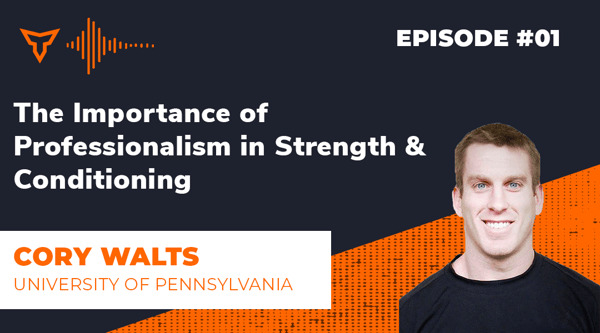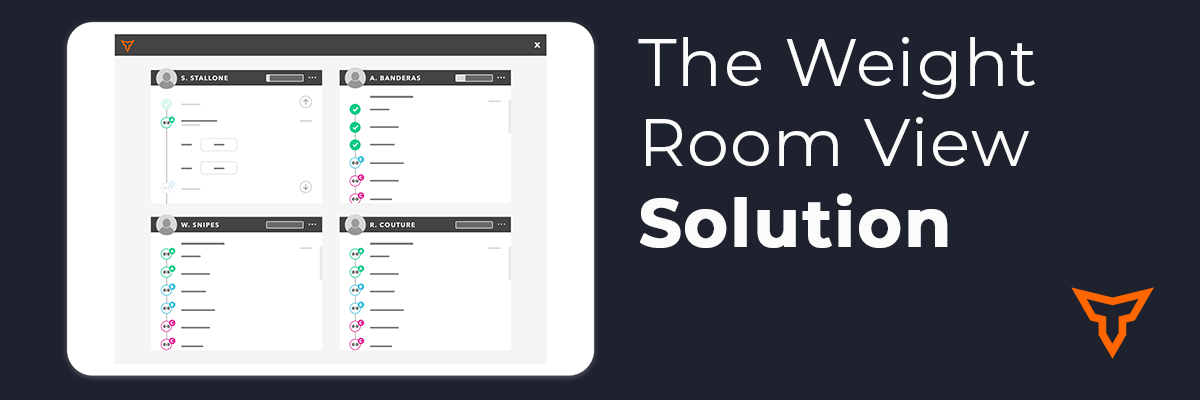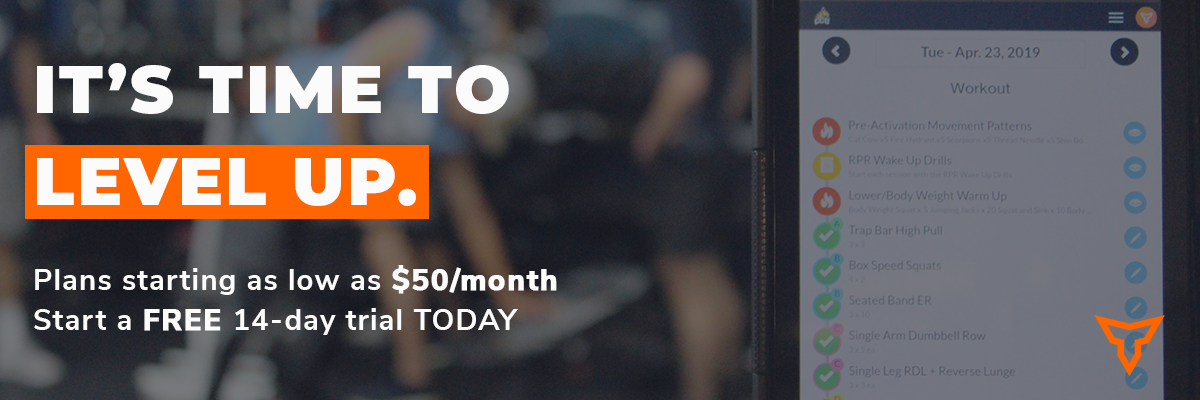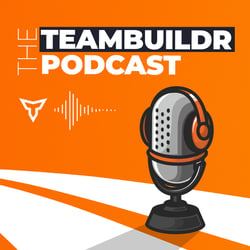Episode 01: The Importance of Professionalism in Strength and Conditioning with Cory Walts
by TeamBuildr, on Aug 26, 2020

Cory Walts, the Director of Strength of Conditioning at the University of Pennsylvania, also known as Penn, sat down with us to talk about what it means to be a "professional" in the world of strength and conditioning.
I think there's a slight lack of respect of our profession. By people outside of our profession that don't know us, because they have this misconstrued representation that we're just a weightlifter. We're just the strong meathead that is only lifting weights and then only cares about that. But I think our profession certainly has evolved.
Walts went on to Penn from nearby Haverford College, where he spent 12 years as the head strength and conditioning coach and fitness center director. During that time, he designed and implemented year-round sports performance programs for a majority of Haverford's 23 varsity sports and several club sports teams. He utilized a holistic approach to create robust individuals and teams, focusing on physiological qualities (movement skill, strength, power, speed, agility, and energy systems); psychological qualities (growth mindset, grit, and internal motivation through the use of education, autonomy and accountability); and lifestyle qualities (positive habit formation in sleep, nutrition, hydration, and mindfulness).
Cory is a 5 year veteran of TeamBuildr, has been coaching athletes for 14 years and in 2013 he was a finalist for the NSCA College Strength and Conditioning Coach of the Year Award.
In the very first episode of The TeamBuildr Podcast, Hewitt and Cory discuss how first impressions can be the very first thing that helps you earn respect -- Tucking in your shirt, facial hair, clean shoes -- It may be a weight room but it is also your place of business.
Cory also discusses how speaking eloquently, body language, how you address your colleagues, and being a chameleon are all aspects of professionalism in strength and conditioning.
Put yourself in the other person's shoes to know how to effectively communicate. Nine times out of ten it is not going to be scientific terminology, because the only people that understand that are us. Rarely are we the ones communicating to each other. It's everybody else.
So find out the effective means. You're going to be speaking differently to a student athlete versus a sport coach versus administrator versus a recruit parent. And that's okay. But you need to be good at that. And the best way to get better is simply to practice
Want to know what "Tuesdays With Cory" are? Where Cory thinks the future of strength and conditioning going? And how Cory can compare the business world to the strength and conditioning world? Listen to find out!








